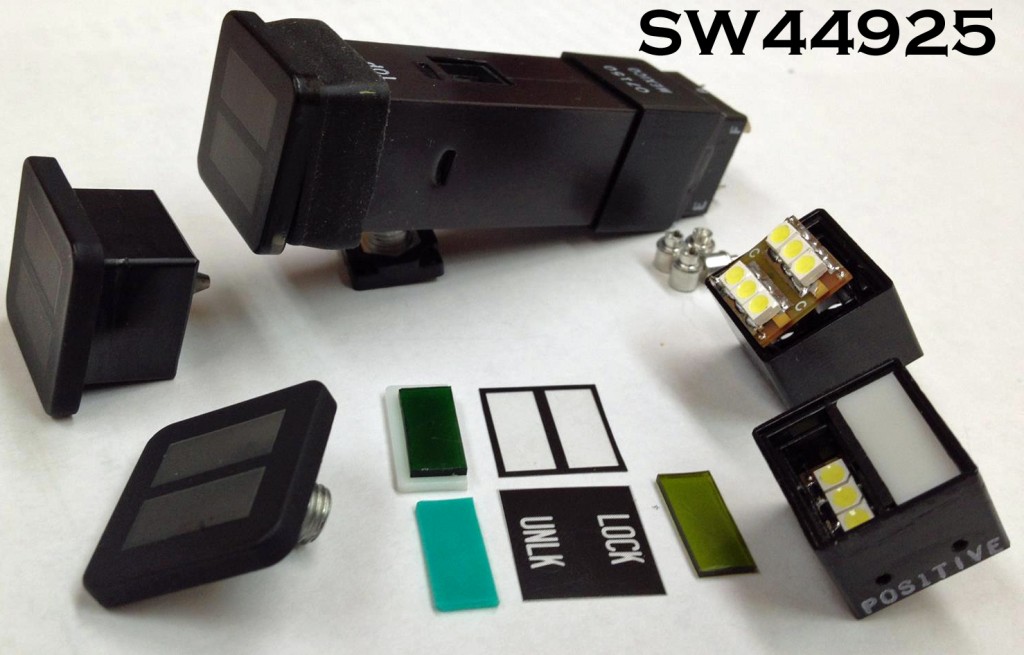
October 29, 2013 – Electro-Mech’s new SW44925 multi-LED pushbutton switch assembly has been re-engineered to improve illumination brightness, diffusion and capabilities. The SW44925 Series still matches industry requirements, including a rubber dust boot for panel protection and an enlarged ‘mushroom’ lens cap. The SW44925 now offers up to 8 total SMT LED’s to achieve 100fL brightness minimum and better light diffusion. Available in a variety of different lens cap, legend and filter materials, the unit is capable of display configurations in full, split, or quad segments, and can provide both continuously visible legends and hidden legends that become visible when LED circuits are activated. End use application is ideal for flight cockpit or simulation, as specifications match industry standards.
The SW44925 installs from the front of the panel and attaches via a mounting sleeve that retains the switch housing, fitting into an industry-standard 0.698” square hole. With multiple LED’s built into the push button assembly, the product offers maximum brightness and redundancy. Night Vision (NVIS) filtering is also available. Switch action is available in momentary, momentary snap-feel, or alternate action.
Performance specifications for the SW44925 (from Series 644-2100) lighted pushbutton switches include life capability of 100,000 actuations minimum. Ratings are 2.0A resistive, 0.5A inductive, with operating pressure of 3 lbs. ± 1 lb (1362g ± 454g), plunger travel 0.187 inches nominal (4.7mm). LED circuits are independent. Lens protrusion 0.250 standard, but can be modified. Switch contacts are silver plated (gold plating optional). Interconnect is provided with standard EMC solder lugs and accept 20AWG wiring (PC pin terminals are available). The switch housing requires less than
3.0 inches behind display panel. The unit is designed to meet applicable military and stringent commercial standards, including seal, moisture resistance, vibration, temperature, shock and environmental requirements, and is rated to IP64 protection standards.
